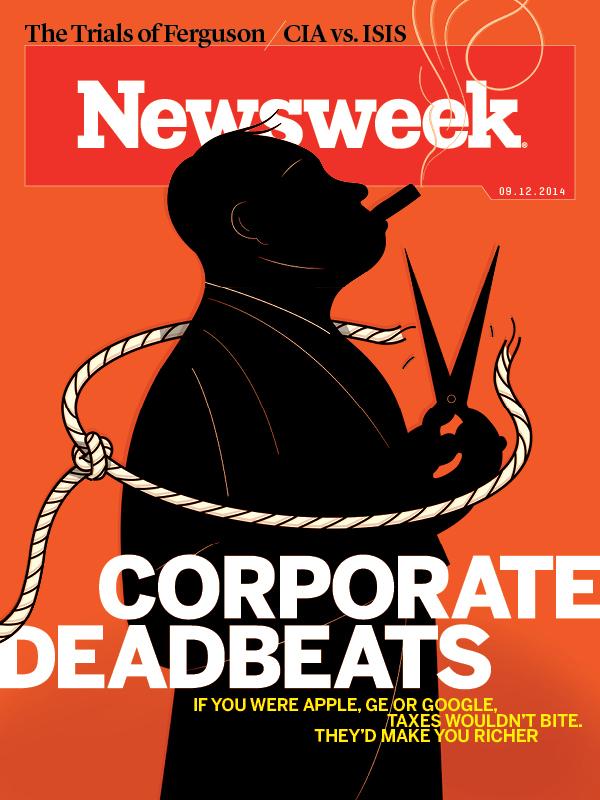
(1) Dr. Dollar on the Ex-Im Bank. Our latest piece from the (still in production) Sept/Oct issue: Arthur "Dr. Dollar" MacEwan answers this question from D&S reader Arne Alpert: "Congressional Republicans and the Heritage Foundation are making a big deal about the Export-Import Bank, calling it “crony capitalism.” Are they right? Does the Ex-Im Bank serve a useful purpose, or is it just propping up the profits of trans-national corporations?"
(2) Susan Holmberg and Mark Schmitt, The Overpaid CEO. Interesting piece that focuses on the costs of high CEO pay. When CEOs get huge paychecks, "the company is choosing to pay executives instead of doing other things—distributing revenues to shareholders, raising wages for workers, or reinvesting in the business. But the greater cost may be the risky behavior that very high pay encourages CEOs to engage in, especially when pay is tied to short-term corporate performance." This piece resonates with our July/August cover story, Marianne Hill's Taming the Corporate Beast.
(3) David Cay Johnston, Corporate Deadbeats. The awesome DCJ has a cover story in Newsweek, which is back in print as of March (it stopped last December). The subtitle: How Companies Get Rich Off Of Taxes." Key quote: "How can a tax burden become a boon? Simple. Congress lets multinationals earn profits today but pay their taxes by-and-by. In effect, Uncle Sam is loaning these companies all that money they do not immediately turn over as taxes. And all of these loans come with the same attractive interest rate: zero." Great article; I'm not sure I like "Off Of" in the subtitle, though. Did Newsweek lay their editors off between December and March?
(4) Abby Scher, At Least Some Unions Step Up for Big Climate March. Former D&S co-editor Abby Scher had this piece at Truthout on Sunday. Choice quote: "The transit workers are my personal heroes of the climate justice movement; when you encounter members of Transport Workers Union Local 100 while flyering for the march on city streets, not only are they already on board, they often have something to say about the state of a world that doesn't deal with the reality of climate change."
(5) National Jobs for All Coalition, Green Jobs for All flyer. Hat-tip to Trudy Goldberg for this flyer that folks from the National Jobs for All Coalition will be handing out at this weekend's Climate March in NYC. Print some up and hand them out if you're going to the march! "Creating green jobs would solve both environmental and unemployment crises—as well as decrease our growing economic inequality."
(6) Americans for Financial Reform, Cost of the Crisis: A briefing paper from AFR, to mark the sixth (!) anniversary of the Lehman Brothers bankruptcy filing. A summary:
Cost of the Crisis – An Updated Reckoning, Six Years After the Lehman Bros. Bankruptcy
On the sixth anniversary of the Lehman Brothers bankruptcy filing (Sep. 15, 2008), the financial crisis is still severely affecting our economy. Today, Americans for Financial Reform (AFR) released an updated compilation of the quantifiable costs of the financial crisis. A few highlights:
- The Dallas Federal Reserve estimates the total U.S. economic output loss from the financial crisis and its aftermath will eventually be $6 trillion to $14 trillion, or $50,000 to $120,000 for every U.S. household.
- Median household wealth in 2013 was $81,200, down 40.0% from $135,400 in 2007 before the financial crisis began (numbers in inflation-adjusted, 2013 dollars). Federal Reserve 2013 Survey of Consumer Finances, Table 4.
- From the beginning of the recovery in 2009 through the end of 2013, wage rates decreased for the bottom 90 percent of workers, despite productivity growth of 4.8 percent over that period. On the other hand, the stock market and corporate profits (adjusted for inflation) have both surpassed their pre-recession peak. EPI.
- More than five years after the recession officially ended, the unemployment rate (U-3) stands at 6.1 percent as of August 2014, up from a pre-crisis rate of 4.7 percent (in November 2007). Long-term unemployment remains at near-record levels. The typical (median) unemployed worker still takes over three months to exit unemployment – a longer period than has ever been observed during any recession period since World War II. Bureau of Labor Statistics.
- At the end of the second quarter of 2014, 8.7 million households remained underwater on their mortgages, representing one out of every six homes with mortgage debt. The average negative equity amount for underwater homeowners was $72,381, or 34.8% more than the home’s worth. In most markets, the largest part of the negative equity is in lower priced homes – 28 percent of the least expensive third of homes were underwater compared to 9 percent in the top tier. Zillow.
With $613 billion in debts, the Lehman bankruptcy was the largest bankruptcy in US history and a defining moment of the financial crisis.
That's it for now.
--Chris Sturr
